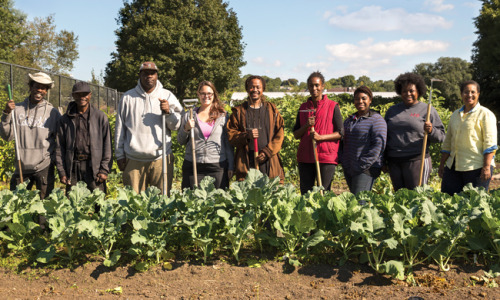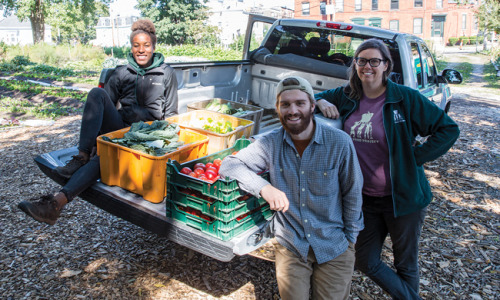pacificnorthwestdoodles:pacificnorthwestdoodles:How One Boston Neighborhood Stopped Gentrification i
pacificnorthwestdoodles:pacificnorthwestdoodles:How One Boston Neighborhood Stopped Gentrification in Its Tracks Tony Hernandez remembers playing as a child on the vacant lots in the Dudley Street neighborhood of Boston. In the 1980s, white flight and disinvestment had so devastated this neighborhood that more than 20 percent of the land—1,300 lots—lay vacant. Today, Hernandez owns a home on this land, one of 225 units of permanently affordable housing. His home is surrounded by parks and gardens, a town common, community center, charter school, community greenhouse, and several urban farms. This transformation was led by residents of the Dudley Street Neighborhood Initiative, who in the late 1980s established a community land trust to take democratic ownership of the land and guide development.A community land trust (CLT) is a nonprofit organization governed by community members that stewards land for long-term public benefit. CLTs protect land from the pressures of the real estate market, as the land is never resold. It remains part of the commons. Under private ownership, land tends to go to the highest bidder and toward uses intended to generate the greatest market return. Cities have an incentive to build up the market value of land, as they rely so heavily on property taxes to fund schools and other services. That explains why too often high-end condos are preferred by developers and cities over affordable homes or urban farms.Dudley Street Neighborhood Initiative: A proven modelThough vacant land was plentiful and inexpensive in Dudley in the 1980s, residents were concerned not just about revitalization but also the city’s redevelopment plans to gentrify the area into hotels and offices serving downtown Boston. Not only did they succeed in pressuring the city to adopt the community’s plan, they also won the right to use the city’s power of eminent domain in a 60-acre core area to take blighted land from private owners and redevelop it. The Dudley land trust, then, would own the land and realize a vision of development without displacement.“It fosters a culture of neighbors actually knowing each other.”Hernandez has lived on the Dudley land trust for the past 12 years with his school-age daughter. He points out that with an affordable mortgage, “I was able to complete my master’s degree in architecture and even set up a college savings account for my daughter. I felt secure, even with foreclosures happening left and right.” Indeed, a 2011 study of foreclosures on CLT housing found that only 0.46 percent of CLT owners were in foreclosure proceedings compared to 4.63 percent in the conventional market. These low rates are attributable not just to affordability but to the CLT’s role in working with both the homeowner and banks to address issues as they arise.Although the market value of homes in Boston has skyrocketed in recent years, Hernandez says he “can’t flip the home,” as the resale price is restricted to a one-half percent increase per year, capped at 5 percent after 10 years. He explains, “The purpose is to cap it so that affordability can be extended to another family.” This continuing affordability is made possible because the land trust owns the land and leases it to the homeowner, who owns only the housing structure.But for Hernandez, “it’s not just about investing in the property but the neighborhood.” Dudley Street Neighborhood Initiative and its land trust are the “bridge between the homeowner and the neighborhood. We just had a great block party a month ago, with people coming out of their homes and hanging out. It fosters a culture of neighbors actually knowing each other. Now if you see my kid doing something they shouldn’t, then you can watch out for them.”Through its governance structure, the land trust balances the varying interests of homeowners and the broader community in the land. Hernandez serves on the Dudley land trust board along with several leaseholders, other community members, and representatives of various elected officials. Ultimately, Hernandez sees the impact of the land trust as “not just on the leaseholders, but also the folks who have market value homes and the ma-and-pa stores.”@tepuitroubleretumble: if you’re up for reading the whole article, don’t forget to click the link. This is only about half. -- source link
Tumblr Blog : pacificnorthwestdoodles.tumblr.com
#boston#gentrification#urban development#affordable housing

